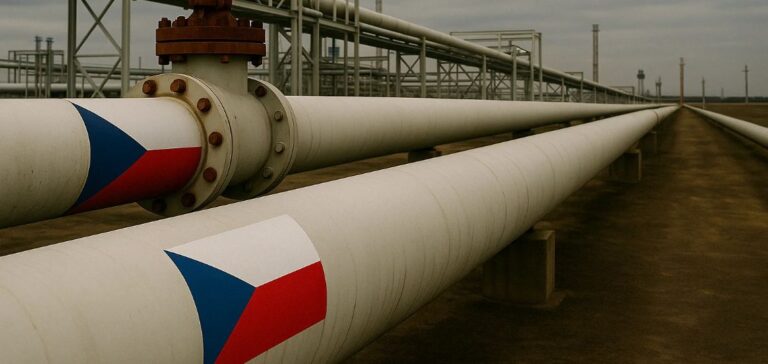The Czech Republic has officially stopped importing Russian oil, ending more than 60 years of energy dependency on Moscow. Prime Minister Petr Fiala announced that the country is now receiving only non-Russian oil, marking a turning point in national energy policy. This decision came in response to Russia’s invasion of Ukraine, which prompted a reassessment of energy supply sources across many European countries.
Before this transition, the Czech Republic primarily relied on the Druzhba pipeline, which has been in operation since the 1960s, for its oil imports. In 2024, the country was still receiving more than 40% of its oil through this route. However, following the implementation of European sanctions, Prague sought to diversify its supplies, halting Russian deliveries in early March 2025.
Since then, the Czech Republic has been receiving its oil via the Transalpine pipeline (TAL), a network that connects Italy to Germany and is linked to the Czech Republic via the IKL pipeline. This change was made possible by a €60 million investment to expand the infrastructure. The first shipment of non-Russian oil arrived on April 12, 2025. The planned annual volume, up to eight million tonnes, is sufficient to ensure the security of national supply.
Strategic Diversification of Supply Sources
The TAL, launched in 1967, provides a solid alternative to the former supply routes. It now transports crude oil from the Caspian Sea, the Middle East, and North Africa. The consortium that owns the pipeline includes several major players in the sector, including the Czech public company Mero and multinational corporations Shell, Eni, and ExxonMobil.
Response to Geopolitical and Energy Challenges
The Czech Republic’s decision to move away from Russian oil is part of a broader effort to secure its energy supply and reduce dependence on Russian resources. This move follows the cessation of Russian gas imports, and the country also plans to stop using Russian uranium for its nuclear power plants. This transition demonstrates how the Czech Republic is adapting its energy policy to the new geopolitical challenges in Europe.






















